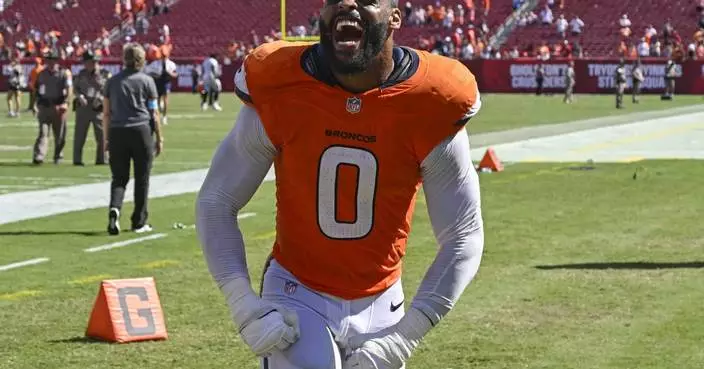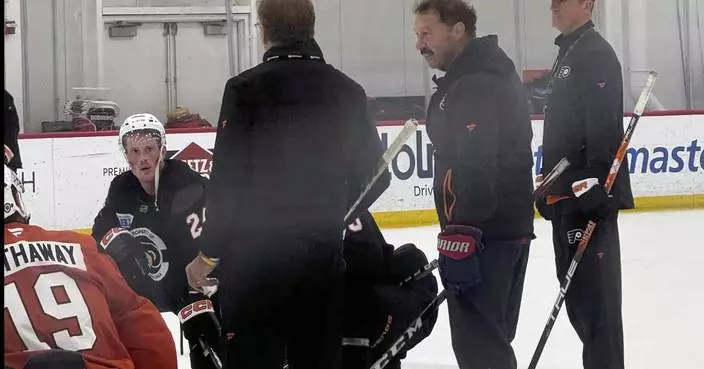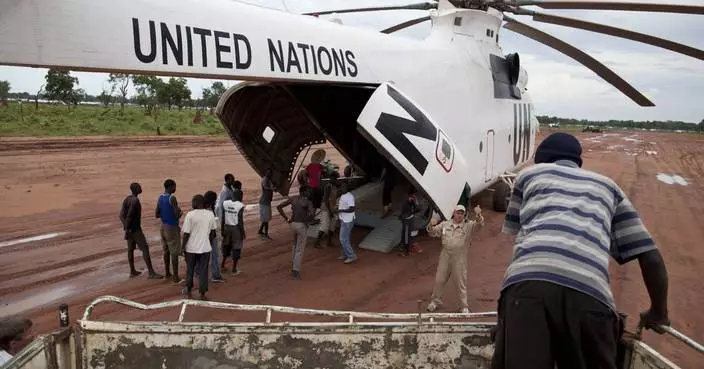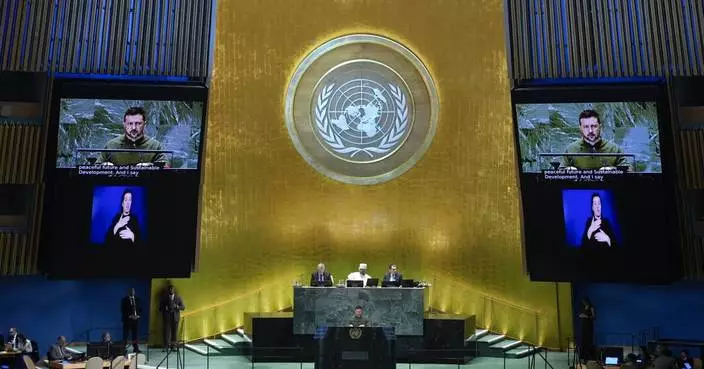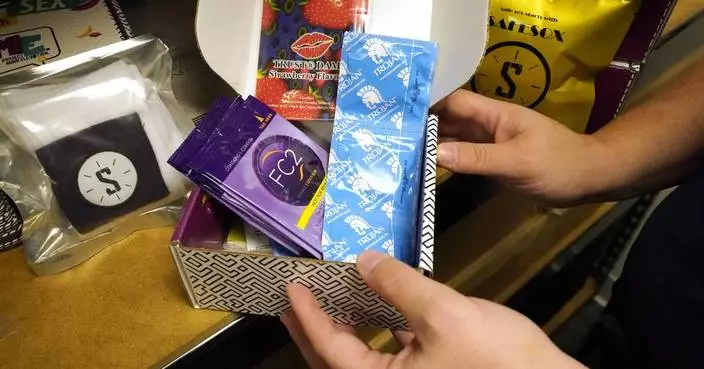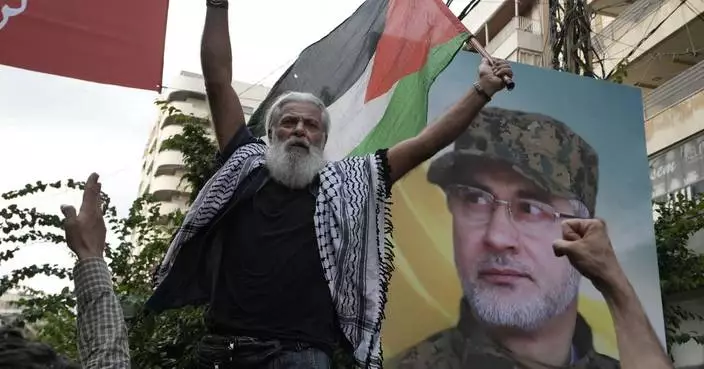AUSTIN, Texas (AP) — A federal jury in Texas on Monday rejected voter intimidation allegations against all but one of a group of former President Donald Trump supporters who surrounded a Biden-Harris campaign bus on an interstate days before the 2020 election.
Only one of the six Trump supporters who were sued in the civil trial was held responsible by the jury. A Texas man whose car brushed up against another as the caravan of vehicles dubbed the “Trump Train” raced down Interstate 35, was ordered to pay the bus driver $10,000 and another $30,000 in punitive damages.
Both sides declared victory at the end of a two-week trial in an Austin courthouse. The five Trump supporters cleared in the lawsuit — which was brought by three people aboard the campaign bus, including former Texas Democratic lawmaker Wendy Davis — described the verdict as vindicating and a relief.
“We’re just ready to feel like normal people again,” said Joeylynn Mesaros, one of the defendants, who described being harassed for participating in the ‘Trump Train.’ “It’s been a thousand something days to have our day in court.”
Attorneys for those aboard the bus said justice was served, even as they disagreed with the jury's decision to clear five of the defendants.
“When I came to this case it was never about politics that day. I’m grateful, I’m proud of my team,” said Tim Holloway, who was behind the wheel of the campaign bus on Oct. 30, 2020.
The Biden-Harris campaign bus was traveling from San Antonio to Austin for an event when a group of cars and pickup trucks waving Trump flags boxed in the bus on the highway. Davis testified she feared for her life.
Video that Davis recorded from the bus shows one of the defendants, Eliazar Cisneros, hit a campaign volunteer’s car while the trucks occupied all lanes of traffic, forcing the bus and everyone around it to a 15 mph crawl.
It was the last day of early voting in Texas and the bus was scheduled to stop at San Marcos for an event at Texas State University. The event was canceled after Davis and others on the bus — a campaign staffer and the driver — made repeated calls to 911 asking for a police escort through San Marcos and no help arrived.
The trial centered on whether the actions of the “Trump Train” participants amounted to political intimidation.
No criminal charges were filed against the six Trump supporters.
An attorney for Cisneros, the only member of the convoy who the jury found liable, said they would appeal.
"With regard to my client, it’s not over yet,” attorney Francisco Canseco said.
Davis testified that she felt scared and anxious throughout the ordeal. “I feel like they were enjoying making us afraid,” she testified. “It’s traumatic for all of us to revisit that day.”
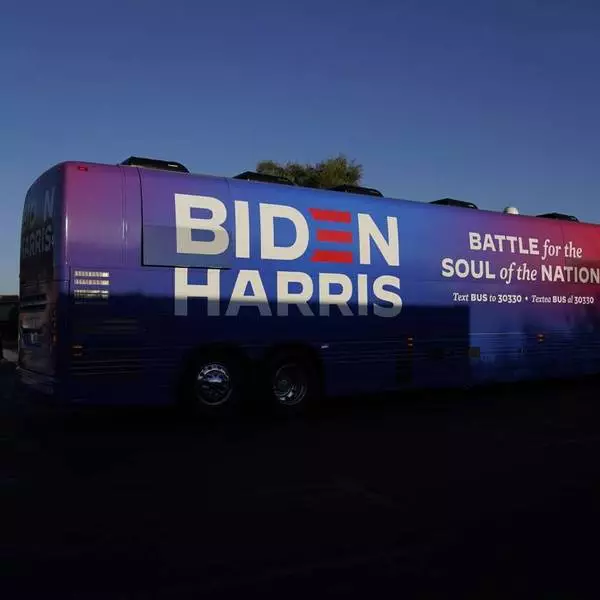
Texas jury clears most 'Trump Train’ drivers in civil trial over 2020 Biden-Harris bus encounter
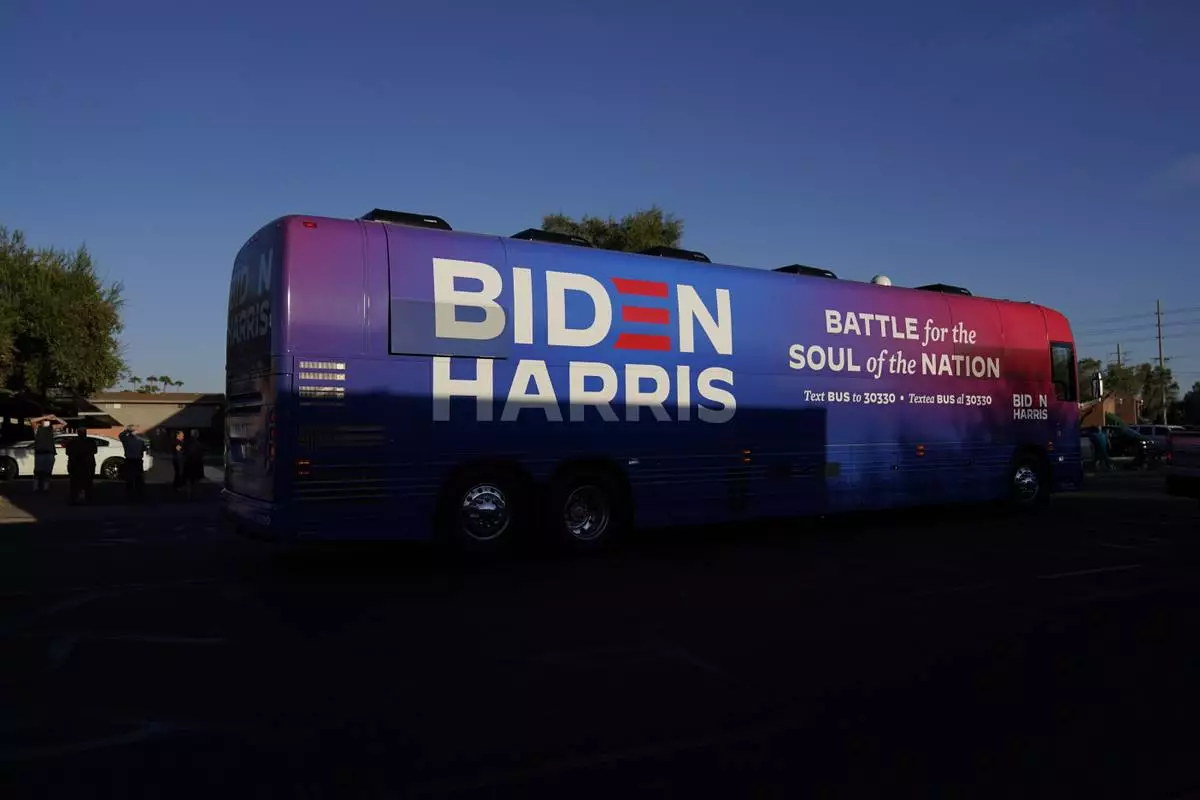
FILE - Democratic presidential candidate former Vice President Joe Biden and Democratic vice presidential candidate Sen. Kamala Harris, D-Calif., ride on a bus in Phoenix, Oct. 8, 2020, on a small business bus tour. (AP Photo/Carolyn Kaster, File)
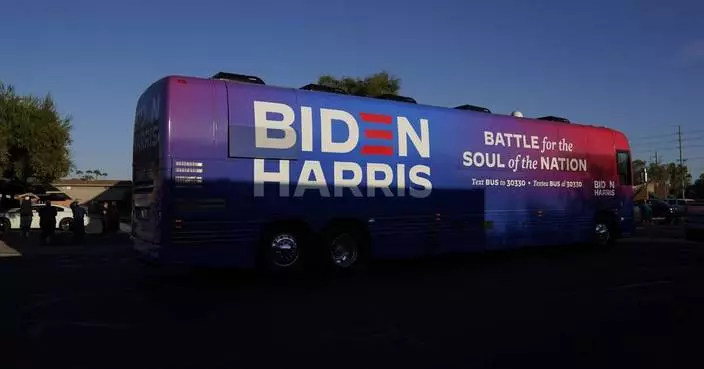
Texas jury clears most 'Trump Train’ drivers in civil trial over 2020 Biden-Harris bus encounter
JEFFERSON CITY, Mo. (AP) — A Missouri man seeking to avoid execution suffered dual setbacks Monday as the state’s top court and governor each rejected requests to cancel his scheduled lethal injection.
Marcellus Williams is set to be executed at 6 p.m. Tuesday for the 1998 murder of Lisha Gayle, a social worker and former newspaper reporter who was repeatedly stabbed during a burglary of her suburban St. Louis home.
Missouri Gov. Mike Parson, a Republican, on Monday rejected Williams’ clemency request to spare him from the death penalty and instead sentence him to life in prison. Parson, a former sheriff, has been in office for 11 executions, and has never granted clemency.
The Missouri Supreme Court also on Monday rejected a request to cancel the execution so that a lower court could make a new determination about whether a trial prosecutor wrongly excluded a potential Black juror for racial reasons.
Republican Attorney General Andrew Bailey’s office argued for the execution to proceed, telling the state Supreme Court that the trial prosecutor denied any racial motivations in removing potential Black jurors. Assistant Attorney General Michael Spillane also said officials in the prosecutor’s office did nothing improper — based on procedures at the time — by touching the murder weapon without gloves after it already had been tested by a crime lab.
Attorneys for Williams still have an appeal before the U.S. Supreme Court.
Williams, 55, has asserted his innocence. But his attorney did not pursue that claim Monday before the state’s highest court, instead focusing on alleged procedural errors in jury selection and the prosecution’s alleged mishandling of the murder weapon.
The state Supreme Court, in a unanimous decision, affirmed a lower court ruling rejecting Williams’ arguments.
“Despite nearly a quarter century of litigation in both state and federal courts, there is no credible evidence of actual innocence or any showing of a constitutional error undermining confidence in the original judgment,” Judge Zel Fischer wrote in the Supreme Court’s ruling.
Parson said Williams has received extensive legal opportunities to try to argue his innocence and accused Williams’ attorneys of trying to “muddy the waters about DNA evidence” with claims that courts have repeatedly rejected.
“Nothing from the real facts of this case have led me to believe in Mr. Williams’ innocence,” Parson said in a statement. “As such, Mr. Williams’ punishment will be carried out as ordered by the Supreme Court.”
Messages were left with Williams’ attorneys at the Midwest Innocence Project, and with Bailey’s office.
“Even for those who disagree on the death penalty, when there is a shadow of a doubt of any defendant’s guilt, the irreversible punishment of execution should not be an option,” St. Louis County Prosecuting Attorney Wesley Bell said in a statement. “As the St. Louis County prosecutor, our office has questions about Mr. Williams guilt, but also about the integrity of his conviction. For those reasons we will continue to do everything in our power to save his life.”
The execution would be the third in Missouri this year and the 100th since the state resumed executions in 1989.
Williams was less than a week away from execution in January 2015 when the state Supreme Court called it off, allowing time for his attorneys to pursue additional DNA testing.
He was just hours away from being executed in August 2017 when then-Gov. Eric Greitens, a Republican, granted a stay after reviewing DNA evidence that found no trace of Williams’ DNA on the knife used in the killing. Greitens appointed a panel of retired judges to examine the case, but that panel never reached a conclusion.
Questions about DNA evidence also led Democratic St. Louis County Prosecuting Attorney Wesley Bell to request a hearing challenging Williams’ guilt. But days before the Aug. 21 hearing, new testing showed that the DNA evidence was spoiled because members of the prosecutor’s office touched the knife without gloves before the original trial.
With the DNA evidence unavailable, Midwest Innocence Project attorneys reached a compromise with the prosecutor’s office: Williams would enter a new, no-contest plea to first-degree murder in exchange for a new sentence of life in prison without parole.
Judge Bruce Hilton signed off on the agreement, as did Gayle’s family. But at Bailey’s urging, the Missouri Supreme Court blocked the agreement and ordered Hilton to proceed with an evidentiary hearing, which took place Aug. 28.
Hilton ruled on Sept. 12 that the first-degree murder conviction and death sentence would stand, noting that his arguments all had been previously rejected.
"There is no basis for a court to find that Williams is innocent, and no court has made such a finding,” Hilton wrote.
On Tuesday, Williams' attorney argued that circumstances are different, because the trial prosecutor had not previously been questioned in court by Williams' attorney about the reason he removed a specific juror.
The prosecutor in the 2001 first-degree murder case, Keith Larner, testified at the August hearing that the trial jury was fair, even though it included just one Black member on the panel. Larner said he struck one potential Black juror partly because he looked too much like Williams. He didn’t explain why he felt that mattered.
The clemency petition from the Midwest Innocence Project focused heavily on how Gayle’s relatives want the sentence commuted to life without parole.
Prosecutors at Williams’ original trial said he broke into Gayle’s home on Aug. 11, 1998, heard water running in the shower, and found a large butcher knife. Gayle, a social worker and former reporter for the St. Louis Post-Dispatch, was stabbed 43 times when she came downstairs. Her purse and her husband’s laptop computer were stolen.
Authorities said Williams stole a jacket to conceal blood on his shirt. Williams’ girlfriend asked him why he would wear a jacket on a hot day. The girlfriend said she later saw the purse and laptop in his car and that Williams sold the computer a day or two later.
Prosecutors also cited testimony from Henry Cole, who shared a cell with Williams in 1999 while Williams was jailed on unrelated charges. Cole told prosecutors Williams confessed to the killing and offered details about it.
Williams’ attorneys responded that the girlfriend and Cole were both convicted of felonies and wanted a $10,000 reward.
Salter reported from O'Fallon, Missouri.
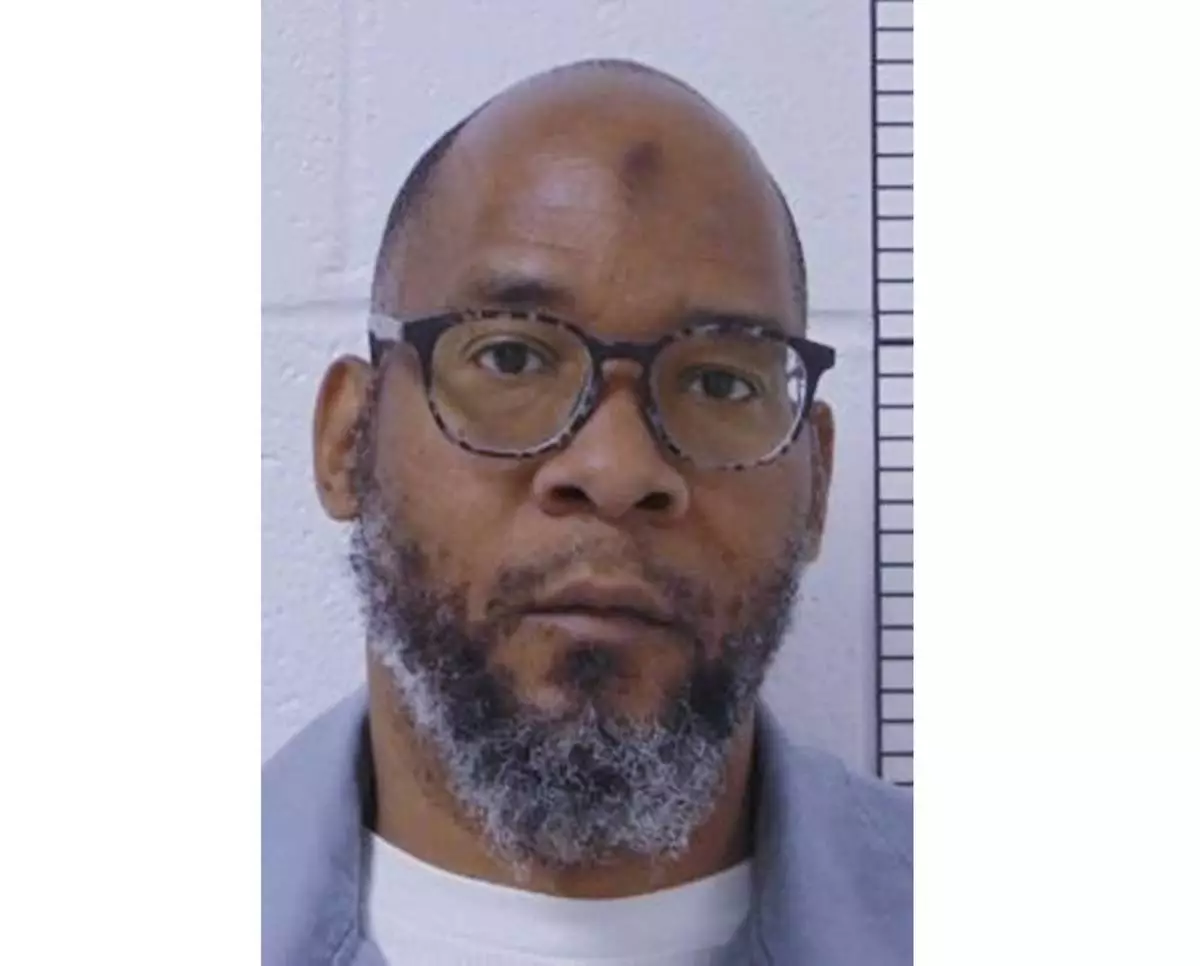
FILE - This photo provided by the Missouri Department of Corrections shows Marcellus Williams. (Missouri Department of Corrections via AP, file)
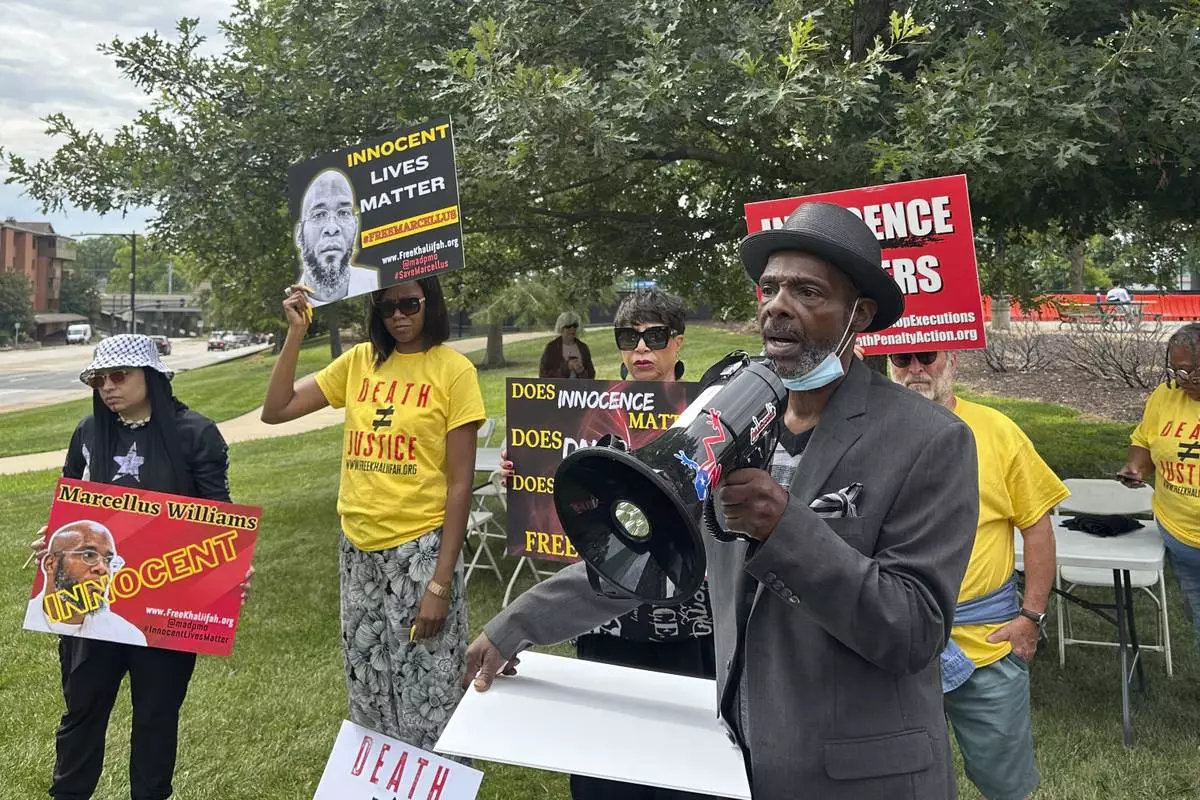
FILE - Joseph Amrine, who was exonerated two decades ago after spending years on death row, speaks at a rally to support Missouri death row inmates Marcellus Williams on Aug. 21, 2024, in Clayton, Mo. (AP Photo/Jim Salter, file)








